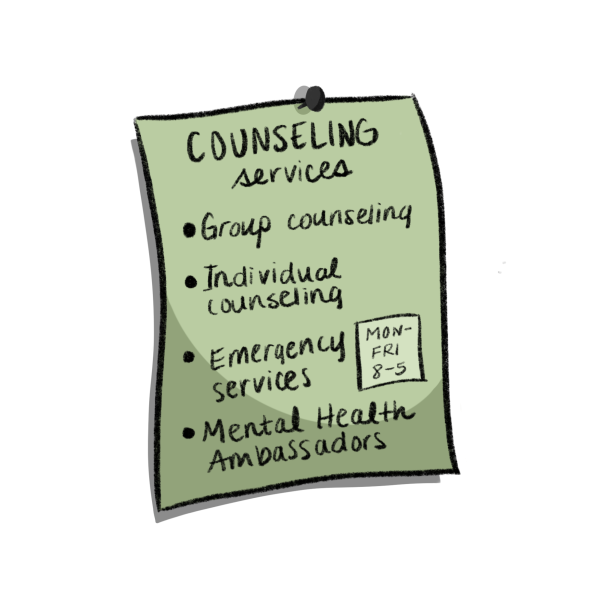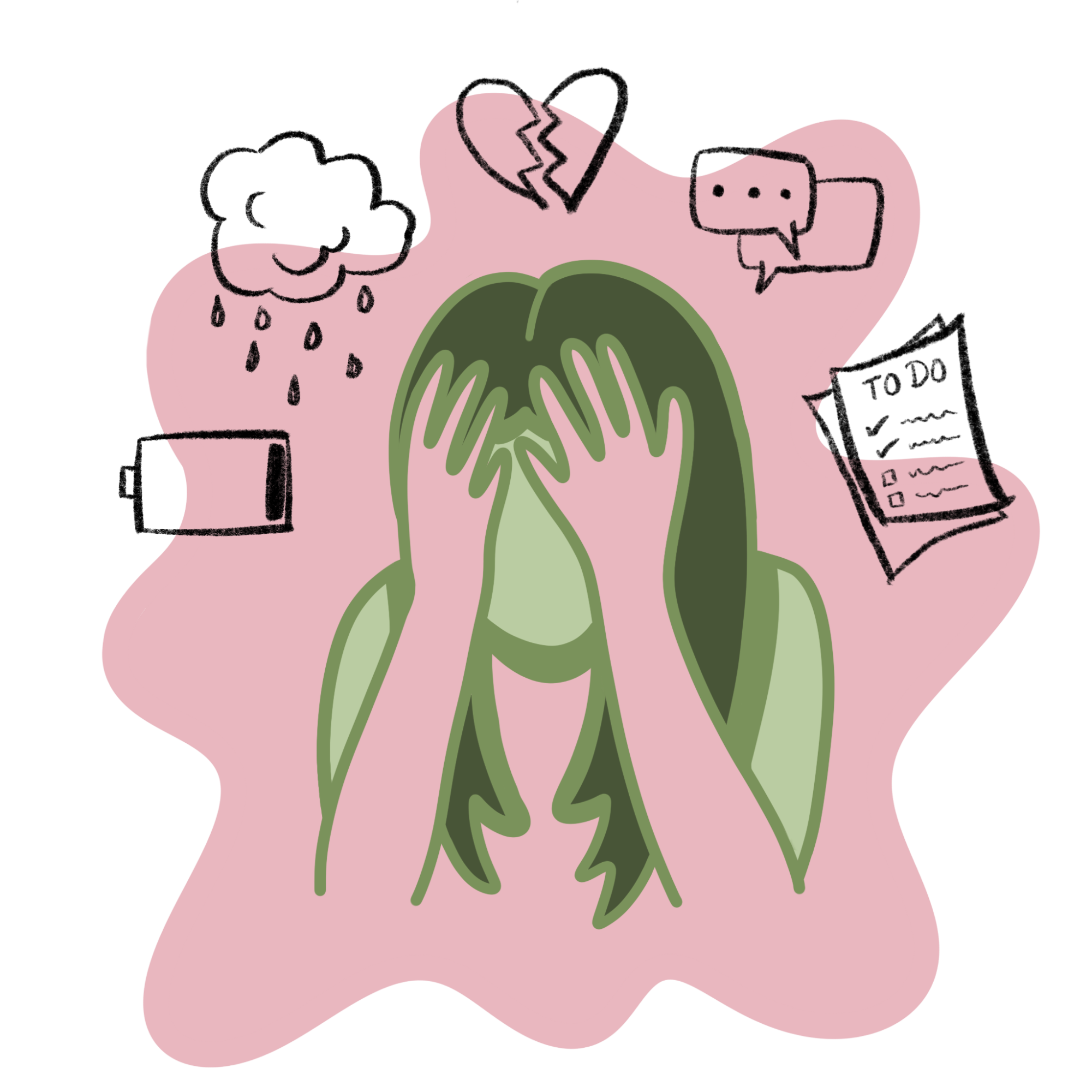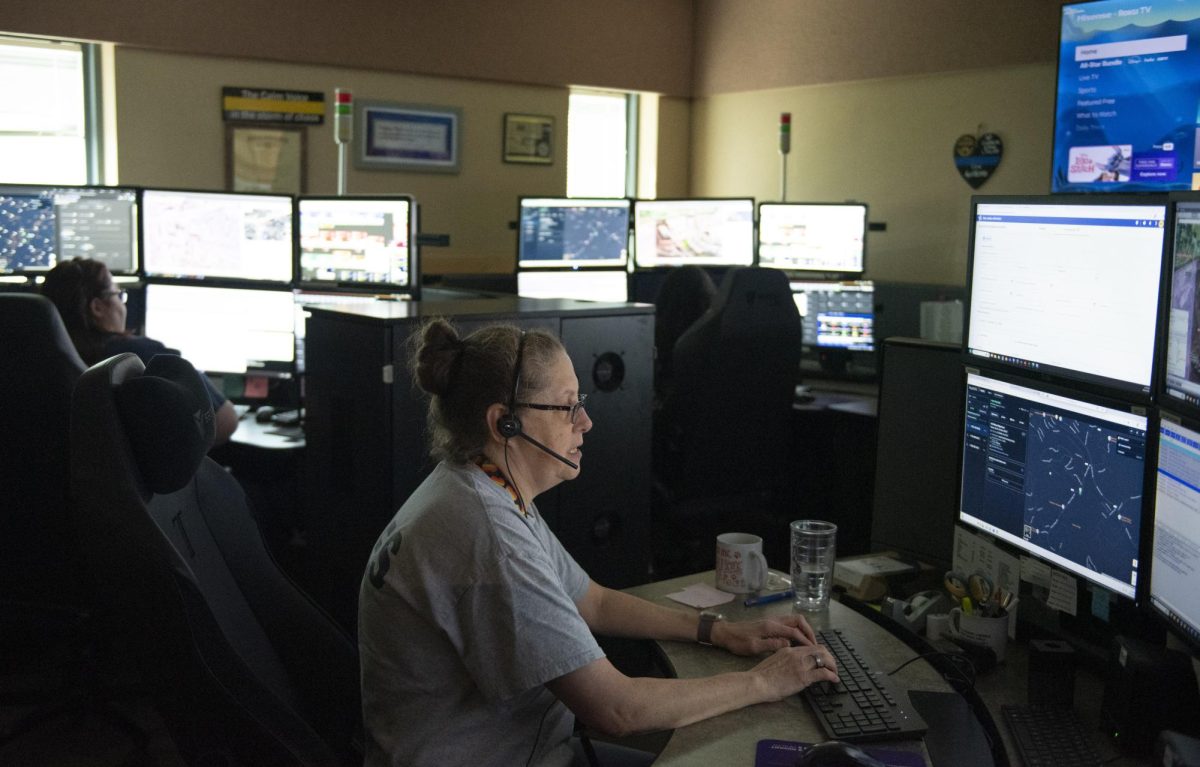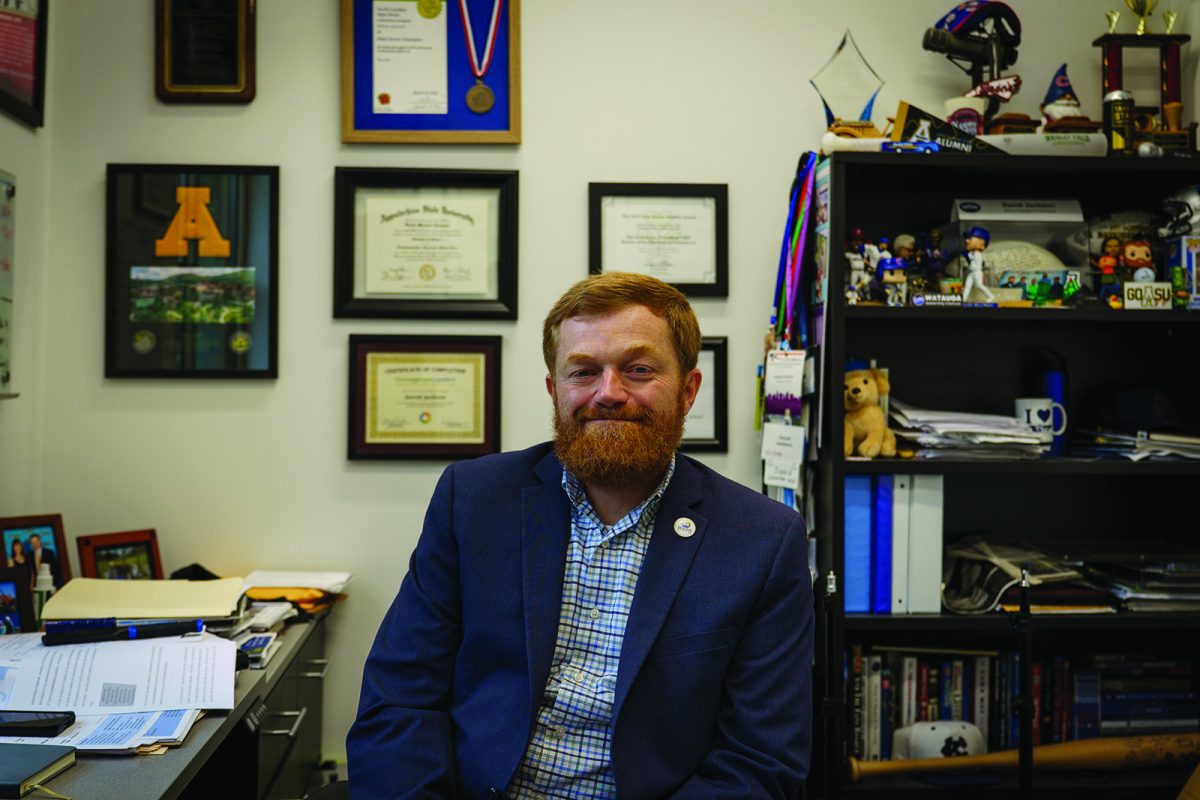Editor’s note: This article contains languages and experiences surrounding mental health.
For many students, moving to college becomes a time of newfound freedom and exploration. However, for others it may be a time of challenges, such as a decline in mental health.
Before moving to App State for her freshman year, Landry Mazzarell, now-senior psychology major, created a call list of people she trusted whom she could call if she was struggling. The list included her parents, brother and friends from home.
“I knew I had anxiety and depression,” Mazzarell said. “I had been through therapy before.”
According to a 2023 report by the National Education Association, professors are seeing mental health issues rise among college students. The report found that students’ abilities to persevere in their studies are being affected by their mental health struggles.
More than 60% of college students meet the criteria for at least one mental health problem, the NEA writes. According to the Healthy Minds Study, this is a nearly 50% increase since 2013.
“A new national survey shows that rates of depression and anxiety among college students are at historic levels,” the NEA writes. “Even scarier, more college students than ever before said that they are thinking about suicide.”
During the first semester, Mazzarell devoted herself to making friends and working to enjoy her freshman year.
“My first year, I rushed and joined a sorority, did everything that normal freshmen did, really just immersing myself in the freshman experience,” Mazzarell said. “But I had anxiety and depression that really needed to be handled and I needed the extra help. I had to go home.”
She said a friend of hers who was in her sorority, Alpha Delta Pi, was the one who made her see she needed the additional help.
Mazzarell went to HopeWay, a mental health treatment facility, in Charlotte during her first semester, where she finished her freshman classes online.
Chris Hogan, senior associate director of the App State Counseling and Psychological Services Center, said college students often come into the center seeking resources for anxiety, stress, depression and relationship concerns.
“Relationship concerns are broad,” Hogan said. “It could be parents, family, significant others or roommates.”
During her first semester, Mazzarell struggled to live in close quarters with a roommate and found herself needing time to be alone each day.
Hogan said the center has seen an equal percentage of students spanning all years of college, with about 28% being freshmen.
When facing the transition to college, students are moved out of a support system they have become accustomed to. Support systems can include friends, family, extracurricular activities and eating habits, he said.
“Sometimes, it just takes people by surprise because they realize, ‘I was used to playing my instrument and I didn’t realize how much of a stress relief that was and I don’t have that with me,’” Hogan said.
The counseling center offers both group and individual counseling and requires students to complete an initial consultation. Hogan said the consultations are usually completed within a couple of days after submission, and most are done over the phone.

Group counseling sessions are also offered through the Counseling Center which Hogan champions as just as effective, if not more, than individual counseling.
“Our ‘understanding self and others’ groups are great because students can talk about anything they would talk about one-on-one,” Hogan said. “It really depends on what the person is dealing with and what some of their preferences might be.”
The center allows students to enter and request emergency services whenever they are needed, Hogan said.
“For emergencies during the daytime Monday through Friday from 8 to 5, when the counseling center is here, we encourage students just to walk in and let our receptionist know that it’s an emergency,” Hogan said. “We’ll have them meet with a counselor as soon as possible.”
The Counseling Center also allows students to call after hours, where they will be instructed on the next steps they need to take.
“So in the evening or middle of the night or on the weekend or on a holiday, students can call the Counseling Center,” Hogan said. “You’ll get our voicemail, and it will give you instructions on which number to press to be connected with the counselor on call.”
Additionally, the center also has a program that allows students to become mental health ambassadors. The training gives students a chance to learn and understand mental health and how it can show up in college students’ lives, as well as give presentations and host events.
“And they do a lot of great work,” Hogan said.
The Counseling Center aims to meet students wherever they may need support, as well as give them the resources they need to manage their mental well-being.
Similar to Mazzarell, junior advertising major Brittany Senior was both nervous and excited about the changes college would bring.
By her second week, she was filling out transfer applications. She found herself overwhelmed with classes and transitioning into college and wanted to step away.
“I started applying to bigger colleges,” Senior said. “I felt like I had more opportunity there.”
Senior found out she had been accepted into one of the universities she applied to and planned to move in for her sophomore year. However, she felt called to return to App State.
Freshmen across the country report feeling overwhelmed, anxious, stressed and depressed during the first year of college. These feelings and struggles stem from adjusting to the transition, meeting new people and entering new classes.
Senior said she started skipping meals and avoiding the dining hall if nobody was able to go with her.
“I had this kind of idea that when you walk in everyone’s staring at you,” she said. “Everyone’s picking out everything about you, which isn’t true at all.”
During Senior’s first year, she said she often didn’t feel she had a set group or community that she could lean on.
“That was really hard,” she said. “Transitioning into my freshman year without having a community of people that I could lean on when I was feeling all these things.”
In addition to App State’s Counseling Center, students have identified the need for support and help with mental health.
Geared toward providing support, App State is home to a chapter of the Active Minds club. The club is “dedicated to eliminating the stigma surrounding mental health,” the club’s Engage profile reads.
“Coming to freshman year is hard,” said club Social Media Chair Natalie Jester. “In Active Minds, I feel like it’s been really helpful to talk about these things and make friends and have a place to go. Active Minds wants to give them a safe place.”
Co-president Reese Cantrell describes Active Minds as a great place to come together with others to combat first-year loneliness.
The club hosts events and meetings to allow members to have open and honest conversations about mental health.
“We talk about social media a good amount in Active Minds,” Cantrell said. “Especially with freshman loneliness, it seems like everyone is making friends. Everyone is having a good time in college. But, that’s only part of the story.”
Active Minds meets every other Tuesday from 5-6 p.m. in room 100 of the Plemmons Student Union.
Both Mazzarell and Senior continued taking classes after their freshman year.
“I am in-person now,” Mazzarell said. “I took away from that experience that I need to slow it down. I ran into freshman year so fast. I had such high expectations.”
Mazzarell now serves as the wellness specialist in her sorority, as well as the president of App State’s chapter of the National Alliance on Mental Illness on campus.
Mazzarell chose her degree in psychology after her freshman year. She said she wants others to know her story.
“I want others to know they’re not alone.”













Colleen Duncan • Sep 17, 2024 at 12:53 pm
Great article ❤️